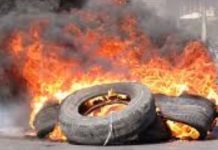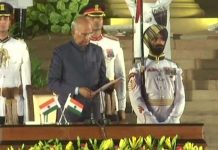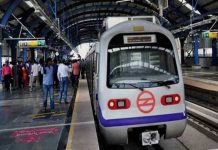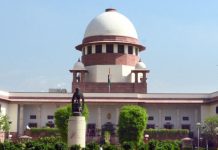[cycloneslider id=”pakistan”]
Make no mistake. The 11 May General Election has sharply divided Pakistan. The back-slapping commentariat has been congratulating fellow Pakistanis for democratically voting out a government. Before the end of the next week, Mian Mohammad Nawaz Sharif, whose Pakistan Muslim League-Nawaz (PML-N) has won the most seats in the National Assembly, will become prime minister. This election is being touted as a deepening of representative democracy in Pakistan because it is the first-ever “smooth” transition from one elected civilian government to another.
But in truth, as with many elections in Pakistan in the past, this time, too, there is widespread belief that the results have been manipulated. Of course, it may never be known if the charge is accurate or not. It must be stressed though that the world would be in error if it believed that Pakistanis see this election much differently from the past ones. They don’t. Perhaps they are angrier than in the past as for the first time the charge that an elector may have rigged the vote is the elephant in the room. In a rush to hail Pakistan’s arrival as a nation of elections, no one wants to talk of vote manipulation.
First of all, the charge that the results may have been manipulated is emerging not only from Pakistan’s former cricket captain, Imran Khan’s Pakistan Tehrik-e-Insaf (PTI) party but also from the Pakistan People’s Party (PPP) that led the outgoing government. And they aren’t all tantrums of the crybabies. Dozens of seats across Pakistan saw a surprising spike in the tally of votes cast in comparison with the last elections of 2008.
For example, in one of the 13 constituencies of Lahore, about 1.6 lakh ballots were cast. Five years ago, that figure had been around 90,000. This time, the incumbent, Tahir Shabbir of PPP, lost to Nawaz Sharif’s brother Shahbaz Sharif. “No one reported that there was a dramatic surge in voting this year compared with 2008,” Shabbir’s brother, Tahir, a 50-year-old paediatrician, told Tehelka. “And yet we are told that the number of voters who showed up were almost double of 2008. How is that?” The answer to that question may arrive soon enough when a by-election is called on that seat as the winner, Shahbaz, is likely to resign from it. He is set to return to his day job as chief minister of the Punjab province that he had since 2008. The PML-N has handsomely won Punjab’s provincial polls held simultaneously with the national one.
Another PML-N victor to the National Assembly from Lahore, Sheikh Saad Rafiq, has been all over television since winning for all the wrong reasons. In stills and videos, he is shown to have forced his way into the women’s section of a local polling station. Certainly, as a candidate, he had the legal right to visit it. But he is seen arguing with voters and polling officials. Rafiq, who I hung out with on polling day as he went to vote, denies he and his men threatened electors who were opposed to him. “I have won fair and square,” he told me later. “These are baseless allegations.”
Once again, however, his opponents point to the numbers being put out. Rafiq won about 1.16 lakh votes. The runner-up, a prominent lawyer named Hamid Khan from PPP fetched 80,000. “This is the cantonment area where most residents have their votes elsewhere in the country,” says Adam Pal, 30, a political activist who travelled across Pakistan to observe the campaigns. “The voting couldn’t have been that high.”
PODCAST
Indeed, for hours on 11 May afternoon as Sharif voted in downtown Lahore and returned to his sprawling party office in the upscale Model Town area, I sat with him, his daughter, Maryam, his brother, Shahbaz, and an assortment of family members and close and trusted aides. It was a unique experience to watch Sharif anxiously flip between the television news stations to see which way the wind was blowing. And anxious he was for at least three hours, until the early results began to trickle in, most of which were in his party’s favour. He began to be relaxed much later.
When I asked Sharif right at the start what he thought of his chances, he in turn asked me what I felt from my romp at the city’s polling booths. He would not speak his mind when a trusted former bureaucrat told Sharif that he believed the PML-N would win upwards of 125 seats in the 272-member National Assembly. (Seventy seats are nominated from among women and the religious minorities.) The discussions there did not include any reports of a massive turnout at the city’s polling stations. A couple of aides even said that the morning had seen mostly voters of the PTI turn up while Sharif’s voters had started coming in after lunch hour. Polling closed at 6 pm. Yet, in the end, his party won 12 of Lahore’s 13 seats, defeating even Imran Khan.
Few are thus buying the official national average turnout of 60 percent. The figure is rather difficult to digest because in several parts of Pakistan, such as in the Baluchistan province in the southwest, the turnout has been as low as 10 percent due to threats from a nationalist insurgency that has wracked the region for decades. Similarly, many constituencies in northern Pakistan and along its western borders with Afghanistan also reported a poor response in view of threats from the Tehrik-e-Taliban Pakistan (TTP), which is distinct from the Afghan Taliban and has run a series of murderous attacks on candidates and their supporters as well as on civilians during the campaign season.













